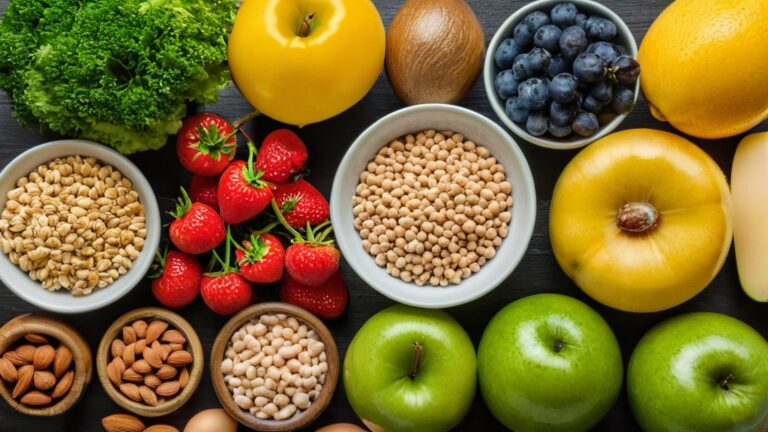As men age, their nutritional needs change significantly. Protein plays a crucial role in maintaining overall health, especially for those over 50. It supports muscle mass, bone density, and overall vitality.
A decline in muscle mass often occurs with age, making protein intake even more vital. Adequate protein helps combat this loss and promotes recovery from injuries. It also supports immune function, which can weaken as men grow older.
Factors That Influence Protein Requirements for Men Over 50
Several factors influence how much protein men over 50 need. Activity level is one of the most significant determinants. Active individuals require more protein to support muscle repair and growth.
Health conditions also play a role in protein needs. Men with chronic illnesses or those recovering from surgery may need higher protein intake. Additionally, body composition and weight can affect individual requirements.
Recommended Daily Allowance of Protein for Men Over 50

The Recommended Dietary Allowance (RDA) for protein varies by age and activity level. For men over 50, the RDA is about 0.8 grams of protein per kilogram of body weight. This amount may not be sufficient for those who are very active.
Some experts suggest increasing protein intake to 1.2 to 1.6 grams per kilogram for older adults. This increase helps preserve muscle mass and supports overall health. Individual needs may vary, so it’s essential to assess personal circumstances.
The Role of Protein in Muscle Mass and Strength Maintenance for Men Over 50
Protein plays a vital role in maintaining muscle mass as men age. Sarcopenia, the age-related loss of muscle, can lead to weakness and frailty. Consuming adequate protein helps counteract this decline.
Strength training combined with sufficient protein intake enhances muscle preservation. This combination improves physical function and reduces the risk of falls. Men over 50 should prioritize both resistance training and protein consumption.
Protein Intake and Bone Health in Men Over 50
Bone health becomes increasingly important as men age. Adequate protein intake supports bone density and reduces the risk of fractures. Studies show that higher protein consumption correlates with better bone health.
Calcium and vitamin D are also essential for bone strength. However, protein works synergistically with these nutrients to enhance bone health. Men over 50 should focus on a balanced diet that includes all these elements.
Protein and Weight Management for Men Over 50

Weight management can become challenging as metabolism slows with age. Protein helps promote satiety, making it easier to control appetite. Including protein-rich foods in meals can aid in weight loss or maintenance.
Additionally, higher protein intake can help preserve lean muscle during weight loss. This preservation is crucial for maintaining metabolic rate. Men over 50 should consider protein as a key component of their weight management strategy.
Protein and Metabolism in Men Over 50
Metabolism naturally slows down with age, affecting energy levels and weight management. Protein has a higher thermic effect than fats or carbohydrates, meaning it burns more calories during digestion. This property can help boost metabolism in older adults.
Moreover, adequate protein intake supports muscle mass, which is metabolically active tissue. More muscle means a higher resting metabolic rate, aiding in weight management. Men over 50 should prioritize protein to support their metabolic health.
Protein Quality and Sources for Men Over 50
Not all proteins are created equal; quality matters significantly. High-quality proteins contain all essential amino acids necessary for health. Animal sources like meat, fish, eggs, and dairy provide complete proteins.
Plant-based proteins can also be beneficial but may lack some essential amino acids. Combining different plant sources can create a complete amino acid profile. Men over 50 should aim for a mix of both animal and plant proteins for optimal health.
Potential Risks of Excessive Protein Intake for Men Over 50
While protein is essential, excessive intake can pose risks. High protein diets may strain the kidneys, especially in individuals with pre-existing conditions. It’s crucial to balance protein intake with other dietary needs.
Additionally, focusing too much on protein can lead to nutrient deficiencies. A diet overly rich in protein may lack essential vitamins and minerals from fruits and vegetables. Moderation is key to maintaining overall health.
Tips for Meeting Protein Needs in Men Over 50
Meeting protein needs can be simple with a few strategies. Start by incorporating protein-rich foods into every meal and snack. Options include lean meats, legumes, dairy products, and nuts.
Planning meals ahead can help ensure adequate protein intake throughout the day. Consider using protein supplements if necessary but prioritize whole food sources first. Staying mindful of portion sizes can also help balance overall nutrition.
Consultation with a Healthcare Professional for Personalized Protein Recommendations for Men Over 50
Every individual has unique nutritional needs based on various factors. Consulting a healthcare professional can provide personalized guidance on protein intake. They can assess health status, activity level, and dietary preferences.
A registered dietitian can help create a tailored meal plan that meets specific requirements. This professional advice ensures that men over 50 receive adequate nutrition without risking excesses or deficiencies. Prioritizing expert guidance leads to better health outcomes as one ages.



